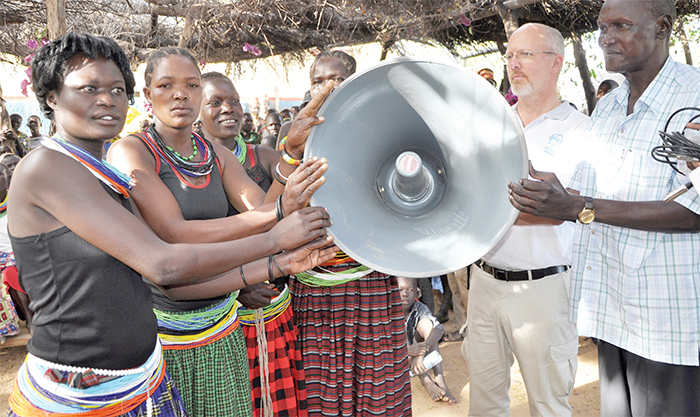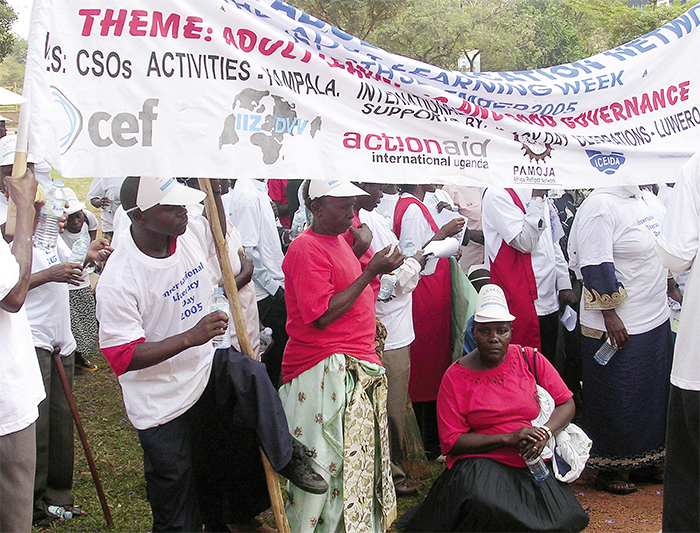Uganda marks World Literacy Day
Sep 07, 2018
In 1992, the Government launched the Integrated Non-formal Basic Education Pilot Project (INFOBEPP).

Today is World Literacy Day. The Ministry of Gender, Labour and Social Development is championing the celebrations under the theme: "Literacy and Skills Development".
The national celebrations will be held at Bwama sub-county headquarters in Mpigi district.
New campaign
An advocacy campaign for a new programme called Integrated Community Learning for Wealth Creation will also be launched to replace the old adult education programme. Celebrants will wear T-shirts and caps with the new programme printed at the back to let people know about the phasing out of the old programme and introduction of the new programme, which experts say is more practical and engaging.
Everest Tumwesigye, a commissioner in the gender ministry, says the Functional Adult Literacy Programme (FAL) has not been active in the rural areas as it was in 1997 and 2010.
How literacy campaign started
The Government first launched a mass literacy campaign in 1964. This campaign was available in 22 languages, with a primary reader, and a text for further reading, available in each language. In 1966, under the guidance of the United Nations Educational, Scientific and Cultural Organisation (UNESCO), the notion of functional literacy was first introduced to these programmes.
 Karimojong adult literacy education graduates receive a public address system at Lorengedwat, Nakapiripirit district in 2012. Today is World Literacy Day
Karimojong adult literacy education graduates receive a public address system at Lorengedwat, Nakapiripirit district in 2012. Today is World Literacy Day
However, this change did not make a significant impression, since the necessary adaptations could not easily be grafted onto existing materials published in 1964. By the time former president Idi Amin's government was overthrown in 1979, Ugandan literacy programmes had completely lost steam and there was very little government provision for adult education. This was to remain the case until the early 1990s.
In 1992, the Government launched the Integrated Non-formal Basic Education Pilot Project (INFOBEPP). This new initiative adopted the principles of functional literacy which UNESCO had attempted to install in 1966 and so literacy programmes were designed to link people's education to their everyday lives and their needs.
Early evaluations of this programme showed positive signs of enthusiasm from participants, with many classes beginning outside of the pilot area as a result of intense demand. In 1997 this pilot programme developed into the government's official Functional Adult Literacy (FAL) programme, which was to be implemented across the country.
 Demonstrators camp outside Parliament in Kampala as they advocate for adult literacy. Karamoja has the highest illiteracy levels
Demonstrators camp outside Parliament in Kampala as they advocate for adult literacy. Karamoja has the highest illiteracy levels
Functional Adult Literacy
The Functional Adult Literacy programme, delivered by the Government with assistance from various NGOs, was designed to be a literacy programme that would focus on linking literacy to people's livelihoods and needs.
The programme incorporates a great deal of skill-specific training, in addition to literacy and numeracy, and attempts to link the two to show learners how literacy is important and can be used for personal development in their everyday lives.
The target group for the programme is anyone over the age of 15, who had missed the opportunity of formal education during childhood. A large range of people are targeted, including men and women, older people and youths, and specific groups of marginalised people such as prison inmates, those who are disabled and ethnic minorities.
A significant aspect of the programme is the availability of micro-loans, to support the development and continuation of income generating activities after graduation from the literacy programme.
